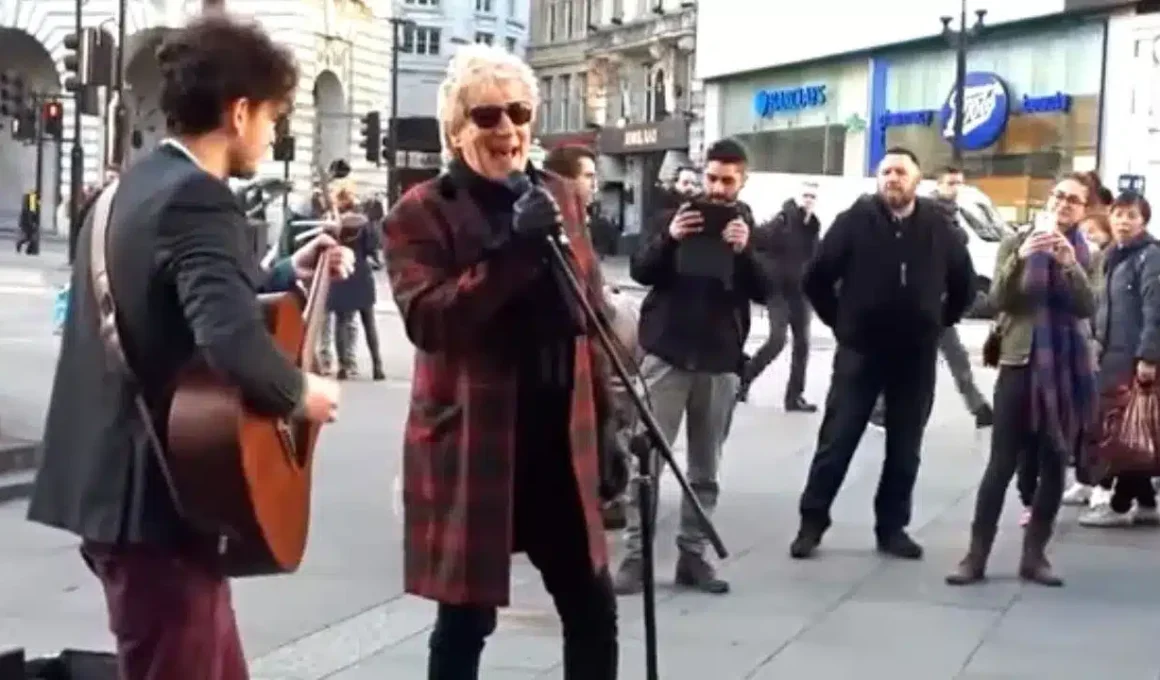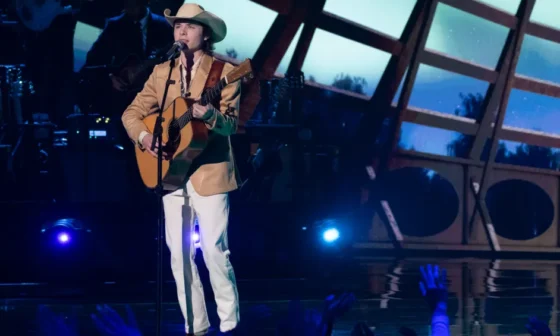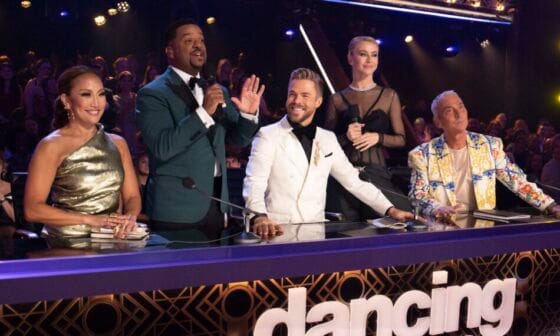It was just another brisk day in London, the kind where the city hums with hurried footsteps and the occasional street melody fills the air. But in a heartbeat, the ordinary turned unforgettable.
Near the bustling heart of Piccadilly Circus, Henry Facey, a seasoned busker with a weather-worn guitar and a soul full of song, was wrapping up his set. His fingers strummed the opening chords of “Handbags and Gladrags,” a classic penned in the late ‘60s and re-popularized by Stereophonics in 2001.
Then, the crowd shifted. A whisper. A ripple. And from that ripple emerged Rod Stewart—yes, the Rod Stewart—gravel-voiced legend, music icon, and the very man who once made that song soar on global stages.
“Mind if I join?” he asked, his trademark grin flashing through the chill.
Henry, visibly stunned but game for the moment of a lifetime, stepped aside. With zero fanfare but all the magic in the world, the two launched into the song.
Suddenly, London stood still.
The sound of Rod’s raspy vocals layered over Henry’s acoustic rhythm turned the corner of the street into a dreamscape. People paused mid-step. Phones rose silently. No production crew. No flashing lights. Just Rod Stewart and a busker, shoulder to shoulder, bound by melody.
For a few glorious minutes, the line between stardom and street faded away. It wasn’t about fame. It wasn’t about spectacle. It was about music—raw, real, and alive in the cold London air.
By the time the final note rang out, the crowd erupted. Henry beamed. Rod clapped him on the back and disappeared into the city like a myth slipping back into legend.
And just like that, a busker’s song became a viral fairy tale—proof that sometimes, the stars really do align on the sidewalk.






